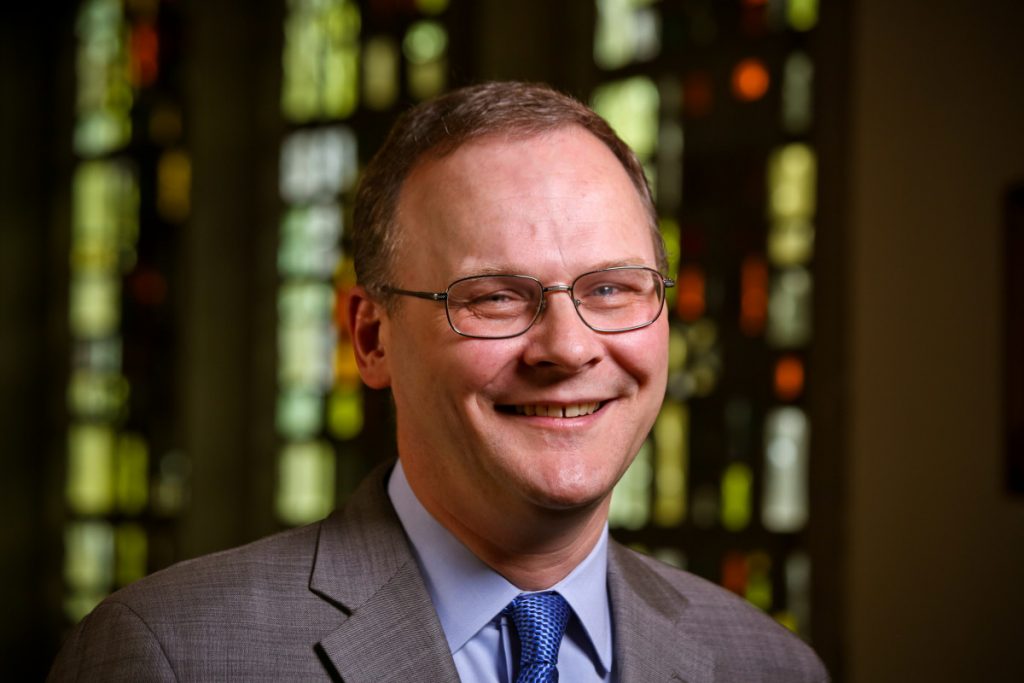
James Buckser
Staff writer
Michael Brough has his own understanding of “Religious and Ethical Infrastructure,” the theme of this week’s Interfaith Lectures.
“Religious institutions have perhaps not contributed as much to healthy and vital society, to the religious and ethical infrastructure that our society needs,” he said.
Brough, an executive partner at Leadership Roundtable, will speak at 2 p.m. today in the Hall of Philosophy in place of his colleague Kerry Alys Robinson after a change in this week’s schedule. Brough said he has worked closely with Robinson, who is also an executive partner at their organization, and called her “a friend of 20 years.”
Leadership Roundtable is a faith-based not-for-profit with a mission to “promote accountability and core responsibility and best practices in church management and leadership” in the Catholic church, often working in partnership with other organizations, Brough said.
“We don’t want to reinvent the wheel,” he said.
Brough said Leadership Roundtable collaborated with the Standards for Excellence Institute, which “created a set of ethical and managerial best practices for the nonprofit sector” including parishes, dioceses and nonprofits.
From those, the Roundtable and the Institute developed a comprehensive set of benchmarks, which help churches evaluate things like their missions, programming, advisory councils and finances.
“They can do a self-assessment,” Brough said. “‘How are we doing against these best practices, and (where are there) areas we perhaps need to pay some greater attention to in order to be a well-run institution?’ ”
A well-run organization will be more effective in its mission, he said.
Also developed by the Leadership Roundtable, the Toolbox for Pastoral Management program is a week-long executive education model for priests that seeks to equip them so they can best fulfill their roles, Brough said.
In the past, priests began their careers with apprenticeships, then, over the course of 10 to 20 years, would work in increasingly important roles in parishes in order to acquire the administrative skills needed alongside the faith-focused skills. Now, however, that is no longer the case, Brough said.
“With the reduction in the number of priests that we have, they’re becoming pastors ever quicker,” he said, so the toolbox program focuses on those practical leadership skills.
“With ordination doesn’t come the competency in all these different areas of managing a staff — of managing a budget, of doing pastoral planning for your parish, of working with a pastoral council or a parish council,” he said.
Brough began his career as a high school religious education teacher.
“I worked in development education and justice education,” Brough said. “The beauty of the church here in the United States is that we have the resources to employ people who can bring that experience and that expertise to our ordained leaders … and I’ve been blessed to work in 13 different countries doing this sort of work, which has been a real education for me.”
In his talk, Brough said he will confirm the aforementioned idea that religious institutions could contribute more to society while “recognizing the challenges that some religious institutions have had.”
Using the Leadership Roundtable as a case study, Brough will also try to demonstrate that there are “new ways of approaching these important questions,” and that religious institutions can still have a part in ethical decision-making and “the healing of our fractured society.”
Brough plans to give “positive directions” for the religious community, and how it can “be in dialogue with and contribute to the broader society.”
He said he hopes to “leave people with the idea that they have the gifts.”
“They have the skills,” Brough said. “We will be successful with building infrastructure, whatever that is, whatever it looks like, to the extent that we as individuals participate, and contribute, learn together and grow together.”




